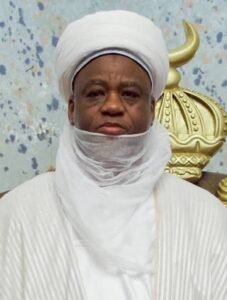Food inflation: MURIC calls on traditional rulers to take a cue from Ooni of Ife

The Muslim Rights Concern (MURIC) has commended the Ooni of Ife, Oba Adeyeye Eniitan Ogunwusi, for his successful initiative to reduce food prices in Ile-Ife and surrounding areas.
In a press statement released on July 14, 2024, MURIC’s Founder and Executive Director, Professor Ishaq Akintola, praised the monarch’s efforts, highlighting the vital role traditional rulers can play in governance.
The Islamic human rights organization encouraged other traditional rulers in Nigeria to follow the Ooni’s exemplary leadership and work towards improving their communities.
The full statement reads:
“A recent video clip which went viral from Saturday, 13th July, 2024 has shown traditional chiefs of the Ooni of Ife, His Imperial majesty, Oba Adeyeye Eniitan Ogunwusi, Ojaja II, going round the city markets to publicly announce the ban on market unions, particularly the practice of fixing prices of foodstuffs by the unions which usually results in inflation.
“MURIC applauds the Ooni’s initiative and his concern for the plight of the poor in Ile-Ife, its environs and even beyond. The royal father has demonstrated beyond any reasonable doubt that he empathises with the hoi polloi and acknowledges the hunger that is widespread in the land.
“We call on other monarchs in the country to emulate the Ooni by thinking outside the box to find ways of alleviating the sufferings of their subjects. Like security, governance must be by collective effort.
“Contributions of traditional rulers like that of the Ooni is one of the reasons why the rigid theory of the separation of powers between the executive, the judiciary and the legislature mut be revisited to include traditional rulers. The latter must be captured in the whole gamut of legislation to legalise their activities.
“We charge Nigerians who are playing the role of middlemen in the Nigerian economy like market unions, petrol and transport-related organisations to reconsider their negative effects on ordinary Nigerians. Most often, the evil that these groups cause is by far worse than what any other body inflicts on the average Nigerian.”






